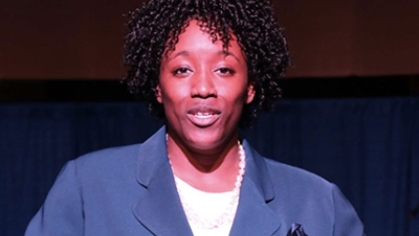For years, Rutgers School of Social Work has offered students the chance to earn a certificate by focusing their education on a particular area of social work. But now, more than ever, these specialized training opportunities are proving to be critical in addressing some of the most pressing needs within our communities.
Our newest certificate program, Latina/o Initiatives for Service, Training, and Assessment (LISTA), is addressing one such need. Although approximately 20% of both New Jersey and New York's individual state populations are Hispanic – and as these communities continue to grow – there is a lack of culturally-competent social practitioners to work effectively with these populations. The LISTA Certificate Program, with funding from the New York Community Trust, was developed to fill this gap.
LISTA aims to increase the number of social workers who are culturally competent to provide services to Hispanic populations through education on evidence-based culturally sensitive practices, internships in Hispanic serving agencies, and experiential learning through study abroad in Hispanic countries.
“Currently, there is a dearth of culturally-sensitive social workers prepared to meet the needs of Hispanic individuals, families, and communities,” says Raymond Sanchez Mayers, Associate Professor and Director of LISTA. “LISTA was started because of the need for more bilingual/bicultural social workers to work with Hispanic communities. Our goal is to increase the number of MSWs who can provide the kinds of supports and resources to improve the lives of people who are often traumatized by their immigration experience, the loss of loved ones, and the uncertainty of life in a new place often characterized by bias and discrimination. That Hispanics can survive, and even thrive, in an often hostile environment is a testament to their resilience.”
Claire Brown, a 2018 graduate of Rutgers School of Social Work’s MSW program and LISTA student, puts her education to use every day in her role as a Spanish-speaking clinician at Jewish Family and Children’s Services. “I use the cultural competency that I learned in LISTA with the children and parents that I work with – everything I learned in LISTA has been very helpful,” she says.
Brown’s training through LISTA helps her recognize the myriad difficulties many Hispanic people face on a daily basis. “One Latinx student that I worked with who attended a local college during the week was having trouble at school,” she explains. “On the weekends, he was expected to come home, be involved in whatever family activities were going on, and help his siblings with their homework. It was really hard for him. He didn’t know how to say ‘no.’ Therefore, how was he expected to complete his own classwork and be ready for school the following week? The papers that I wrote for Dr. Sanchez Mayers really opened my eyes to the great need for first-generation student programming in universities.”
In addition to LISTA, Rutgers School of Social Work MSW students can choose to focus their social work training by earning a certificate in addiction counselor training, aging and health, promoting child and adolescent well-being, or violence against women and children. With the COVID-19 pandemic bringing to light many of the challenges our most vulnerable populations face, these specialized training opportunities are helping future generations of social workers tackle some of the most critical needs of our society.



